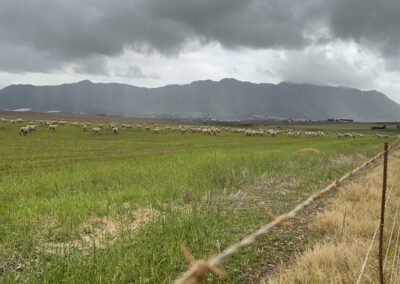If the events of 2020 have taught us anything, it is that we cannot ignore business resilience. Business resilience is at the core of sustainable or environmental, social and governance (ESG) investing practices. A common objective of integrating ESG into fundamental investment practices is to improve how risk can be identified and mitigated. Isometrix, a leading supplier of integrated software for ESG compliance, spoke to Silvana Claassen Senior Carbon Advisor at Climate Neutral Group South Africa about how the COVID-19 pandemic has affected environmental sustainability and carbon tax, and the important role they both play in building business resilience in an increasingly volatile global landscape.
Not too many years ago, the prevailing wisdom was that profit and corporate social responsibility were mutually exclusive pursuits. The idea that a company could improve its bottom line by decreasing greenhouse gas emissions or reducing income inequality had little chance of gaining traction among executives.
It is increasingly clear that enduring commercial success is linked to a commitment to sustainable development, according to Deloitte’s 2030 Purpose: Good Business and a Better Future – Connecting sustainable development with enduring commercial success. The paper shows that in a study of 12 of the biggest global manufacturing companies that prioritizes sustainability, all of the companies had saved or were projected to save millions of dollars. The research further shows that of the companies who focus on product level sustainability, 64% showed significant reductions in cost across their logistics and supply chain.
Deloitte’s Global 2019 Millennial Survey finds that 38% of millennials and Gen Zs have stopped or lessened a business relationship because of a company’s ethical behavior. Conversely, 36% said a company’s engagement with social issues spurred them into becoming a customer or deepened their relationship with the organization.
When a crisis like COVID-19 hits, it may be tempting for businesses to focus their efforts on their own financial health, while sustainability efforts take a back seat. Silvana is hopeful that environmental initiatives like Carbon Tax have gained enough momentum to not be derailed. “The financial crisis hits and green climate change moves away from the top of the list of priorities,” she explains. However, she advises caution to businesses, maintaining that environmental and sustainability efforts are not nice to have. Indeed, they are the foundation on which businesses can build resilience in volatile times.
Silvana explains that while it may be tempting to cut costs by not complying with things like Carbon Tax, it would be far more prudent to ensure efficiency in processes to reduce operational costs. “This is how you build resilience. This is how you save money,” she says. It is time to look at the long-term and start changing behavior.
Building local economies
The COVID-19 pandemic is not an isolated event, and the impact on global economies will be felt for a long time to come, this is why building resilience is so important. “It is imperative to reduce dependency on global supply chains and build local economies. This way you are not dependent on countries that may go into lockdown again as the second wave of COVID-19 sweeps over Europe,” she says.
Building local economies reduces carbon emissions, and this makes a difference when calculating Carbon Tax, which could also contribute to saving the business money. Business resilience and sustainability go hand in hand, what is good for communities is also good for business.
“Ultimately, you reduce risk when you reduce movement due to distribution and supply chains,” she says. What’s more, the COVID-19 pandemic has changed the way employees and employers view office work. “When the crisis hit, a lot of people started working from home, and businesses had no choice but to trust their employees to maintain productivity outside of the traditional office environment,” says Silvana. We have also learned that international travel for meetings is also not a must-have. This means fewer cars on the roads, and fewer flights which also contribute to reducing carbon emissions. While these may seem like marginal gains, Silvana explains that building resilience is exactly that: “Small actions create bigger consequences.”
Data as a key component of business resilience
In order to make informed, objective decisions, you need good, well-managed data. “You build resilience and achieve operational efficiency by managing your data,” says Silvana, “you have to be on top of your data.”
Good governance of social and environmental issues cannot be done without data, and technology to manage that data. This is how you survive a crisis. Good ESG management helps you respond to a crisis more swiftly, and the faster you respond, the better. These risks are intrinsically inter-related in a business. You cannot drop environmental issues to respond to a health crisis, for example. With so much to juggle, it makes sense then that data management is vital to not dropping the ball.
Learn more about how IsoMetrix can help you manage your ESG risks and how Climate Neutral Group can help you manage your company Carbon Footprint
Credits: Isometrix, Beatrix Knopjes.



